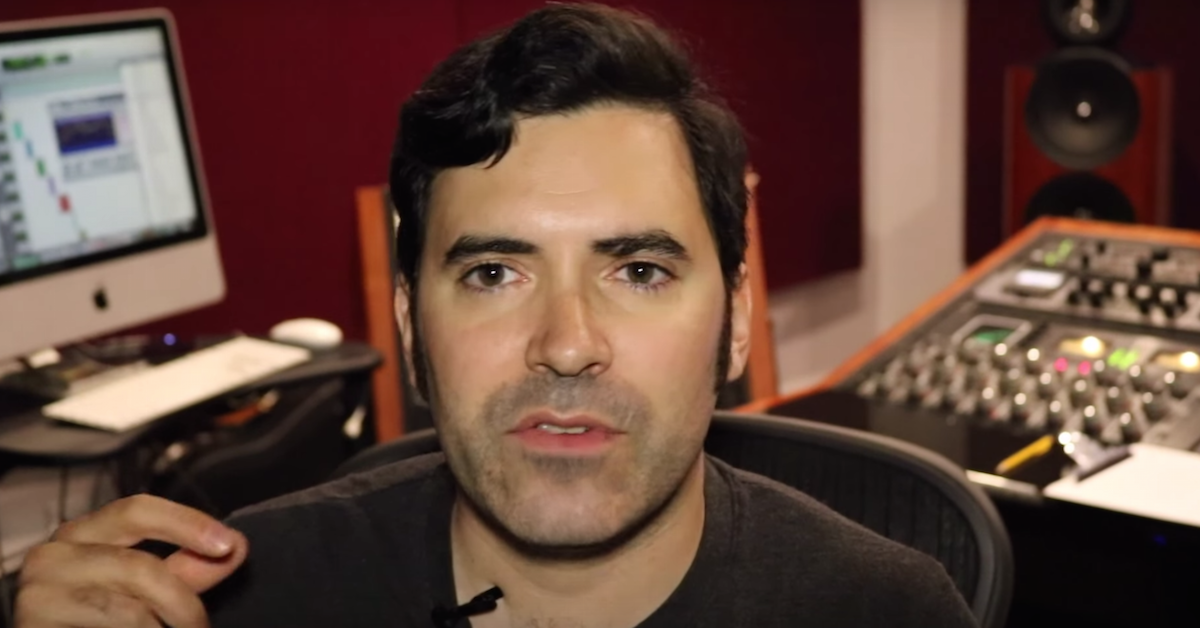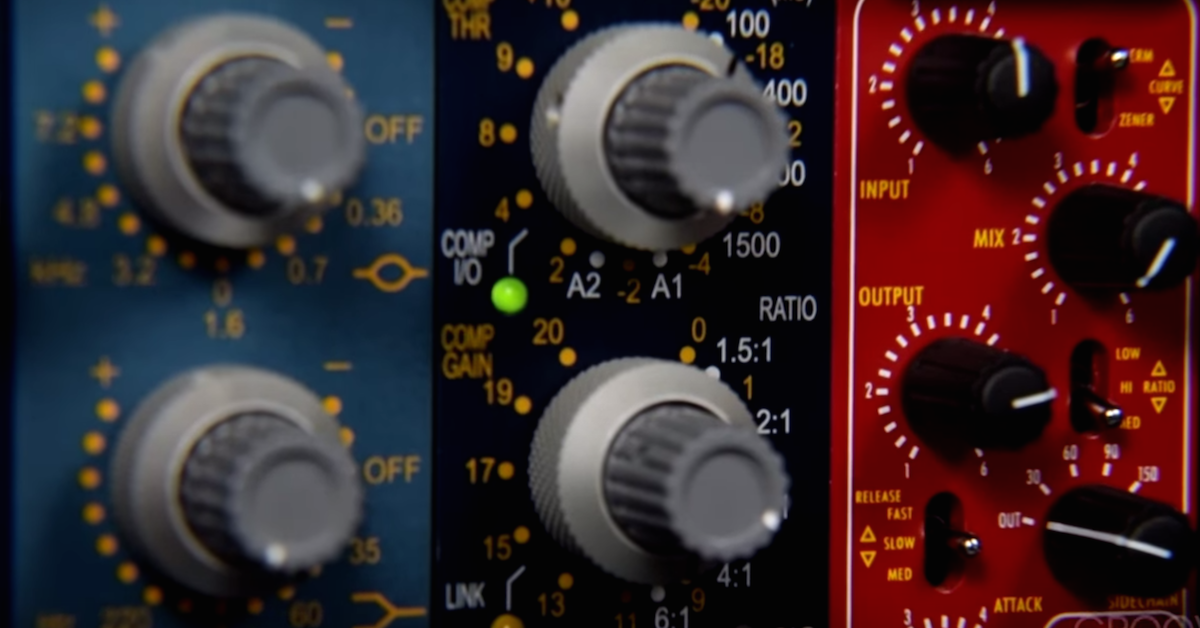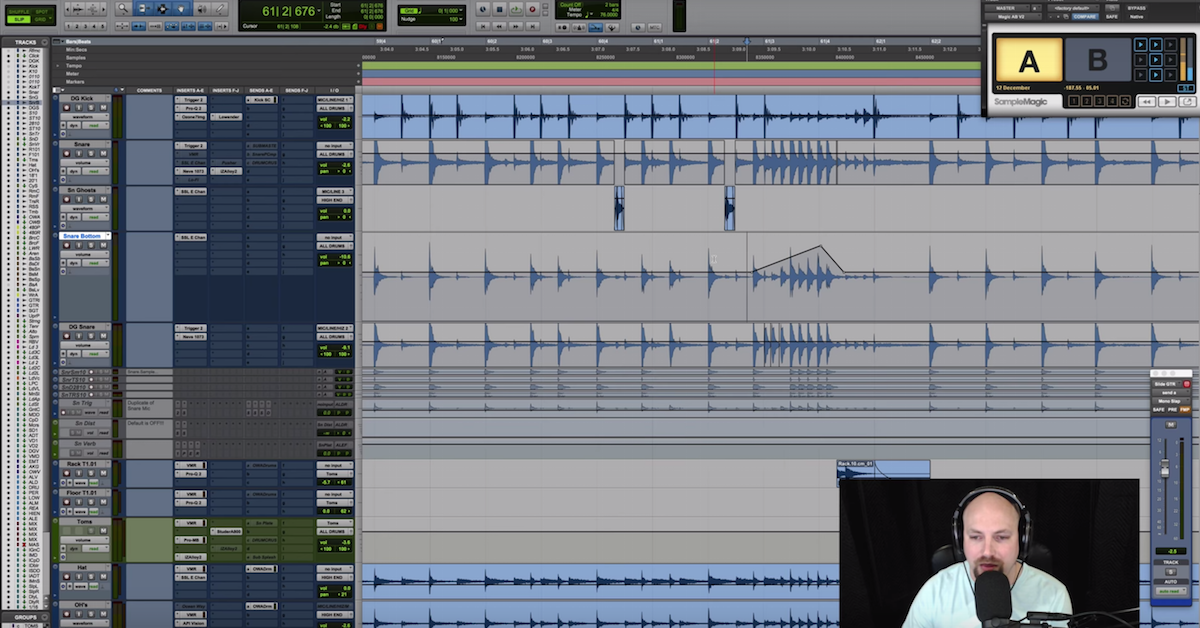How To Get Your Music Heard (By Actual People)
Today on the Sonic Scoop video blog, how to actually get your music heard by actual people. This is a little bit of a follow up to a post I did a few weeks ago about how to release your first full length album if you’re a new artist, and my suggestion was if you’re a new artist, you don’t actually want to start with a full length album.
You want to start by releasing a song, and then another song, and then maybe another, and then maybe and EP, and to start using these early, incremental releases to start gaining traction and to start building an audience that’s then going to be interested when you actually have your first major musical project that you’re ready to unleash to the world.
This is a lot better than spending months and months and months on a full length album, only to realize, “Oh, wait a second, how am I going to actually get people to hear this thing?”
So I got a lot of positive feedback on that post, a lot of e-mails, a lot of comments, a lot of questions. The most common question being something like this! “Justin, sounds like a great idea, smart, I want to do that, but how do I even get that first song heard by anybody? How do I start building an audience and start building traction?”
It’s a great question every successful musician you’ve ever heard of has been in this position at one point or another in their career. It really comes down to one fundamental concept. You’ve got to start building a network, and you want to start building it before you need it. So what is a network and how do you build one?
Well, I think there are four essential components in any successful network. One, advocates. These are people who already have their own audience, their own platform that they can get your music in front of.
Then you’ve got allies. Allies are collaborators. People you can kind of cross promote and cross pollinate audiences with.
Then the audience! This one seems pretty self explanatory, but there is one key effective way for building an audience that most new musicians and new artists don’t take seriously enough when they first get started, and I’ll get to that in a second.
Then there is your hired guns. So advocates. These are music journalists, music bloggers, anyone who runs a podcast or a radio show, or even people who put together popular YouTube or Spotify playlists. Anyone who can get your work in front of an audience that’s already established.
Well, how do you get these people interested in you? Well, there is a couple of things.
First, you need to identify the right ones. The easiest thing in the world is to throw out names of relevant outlets. Spin, Billboard, Rolling Stone, Pitchfork, Stereo Gum, NPR Music, whatever is relevant in your world. It might be smaller blogs. Whatever makes sense in the world that you’re operating in.
So you want to identify those outlets, good. Good start. But then you want to identify the actual individuals who specifically at that outlet is really covering stuff that’s relevant to what you’re doing.
And you want to think like a listener, you want to think like a music fan. If you were a listener or fan who is looking to discover new music like yours, who is looking to discover new artists like you, where would they look? Who specifically is covering kind of things that are relevant to what you’re doing?
Then you want to try to get those individuals interested in you. There’s two approaches, one is to be interesting, and you want to be interesting, you’re not going to get very far in the world of music or the arts without being interesting, but it’s not the only or most effective way to get people interested in you.
The other effective way to get people to be interested in you is to be interested in them, and to be interested in them, when you don’t need something from them. So what I’m recommending here is not to blow smoke up peoples’ butts, but to get invested and interested in the world of those who are helping to uncover new musicians, and to really follow it a little bit, and try to discover new musicians that you actually like.
Just reach out in a way that shows that you respect, appreciate, and understand what they’re doing. You might say, you know, I was reading, and I noticed your feature on Band XYZ. Thank you for introducing me to them, because I honestly hadn’t heard of them before, and now I can’t get this song out of my head.
Then you can do even one better by trying to be useful, by saying, “This reminded me of another artist,” whether it’s an old one or a new one, “Who I think you might also like,” and even better if you can be more useful and say, “I know the bass player or the singer, maybe I can get you an interview with them? They’re really starting to kind of build an audience in that world, and I think it’s something that you might want to check out if you haven’t already.” I mean, as a journalist myself, if someone did that and someone reaches out to me and says, “I like what you’re doing, I learned this, it made me think of this other thing that you might want to check out, and maybe I can hook you up with this other thing.”
Oh my god, someone sends me that e-mail, and then they follow up with me months later and say, hey, I have my own thing that’s coming out now, maybe you’d want to check it out?
I’d probably say yeah! I’m going to check it out. I mean, this person has already proven to be a relatable, connectable human being, and I’m just more interested in them because of that. This is not slimy, this is not cronyism, this is making actual connections with actual human beings, which is hopefully what you’re trying to do with your music anyway.
So that’s one thing. You do want to get advocates interested in you, and one of the ways to do it is to be interested in what they’re doing and to reach out to them in a way that’s genuine and authentic.
So then there’s number two, allies. And allies, the most obvious example here are other musicians. Artists that you can perform with, that you can cross pollinate and cross promote audiences with, but these can also be other collaborators that you can do the same with.
It can be producers and engineers that you work with that have their own followings, it could be videographers, graphic designers, fashion designers, cartoonists, I mean, your imagination is really the only limit on this one.
The most important thing here though is not to be jealous of the successes of your peers, right? The better that they do, the better that you can do. I was actually with a client today who put it very well. A mentor of his told him that when someone that you know, that you’re working with, that you’re allied with has some great success, you don’t want to be jealous. That success is not a door slamming in front of your face, it’s a door opening up.
You don’t want to fall into the trap that so many musicians fall into of only liking dead musicians, and this is something that comes up a lot, right? So many musicians, their favorite musicians are only dead musicians, because they’re not threatening, but the only successful musicians I know, they know and work with and collaborate with other musicians who are making music today that they can collaborate with, cross promote, cross pollinate audiences with.
That’s really essential. But yes, with that in mind, it’s okay to be competitive, but being competitive means you hear someone else’s release, and you say, “Oh, I want mine to be that much better.” It’s not hoping that somebody else fails. This is not a zero sum game, it’s not winner takes all. Get out of this zero sum fallacy of everyone else’s success takes something away from mine.
No. The world doesn’t work that way. If you’re a civilized human being, you realize that the world is not a zero sum game, it’s not about getting as big of a slice as you can of some fixed pie, it’s about growing the pie and finding people that you can grow the pie with.
So cross pollinate, cross promote, find collaborators that you can share audiences with. Being competitive is okay, as long as being competitive means you are trying to do even better, not that you’re wanting to see other people fail.
Alright, then there’s number three, and that is developing an audience. What’s the most essential way to develop an audience? There is one super effective, key way to develop an audience that not enough new musicians take as seriously as they have to, and that is performing live as much, as often as possible.
And not just performing live in your own home town, you’ve got to get outside of your local market, and this goes for you, people who live in New York, and LA, and Brooklyn, and major markets. It goes especially true for you, because here’s the thing, if you’re some Brooklyn indie rock band, playing your show in Brooklyn, that’s not an event, that’s called a week night.
However, if you’re the same Brooklyn indie rock band, and you go to Bloomington, Indiana or Columbus, Ohio, you can be sure that every young person in that town who’s into that style of music is going to at least think about going out to that show, and then when you go out to that town again, there’ll be more people that show, and when you go out again, there may be more people at that show again.
So that again is huge. You’ve got to play, you’ve got to get in front of people. It is the most surefire way to build fans. You’ve got to do it again, and again, and again, and you have to do it outside of your own local market.
Alright, then there’s number four. It’s probably helpful at some point or another to get professional help involved, hired guns. These are PR people, people who are going to help you promote, they can help connect you to advocates, to allies, help you in building a fan base, but they can’t do it all alone. They’re not going to be very effective unless you’ve been putting time and energy into these other three essential pillars of building your music network.
In fact, the label people on this end aren’t even really going to be interested in you unless they see that you’ve really been building these first three. That’s what they’re looking for more than anything.
So there it is. Those are your four components of a successful network. You’ve got to have advocates, you’ve got to have your allies, you’ve got to build an audience by getting out there and playing live shows in person, in front of real people.
At some point or another, the hired guns may be a helpful addition to all of this.
Now, I know there’s a chance you might be thinking, “Well, this isn’t why I got involved in music to do, I wanted to specialize in playing music and writing songs,” and all of that is important and you should, but here’s the reality. This is work that has to get done for your music to get heard.
It has to get done by somebody. Even if you’re not the one doing it, maybe there is someone in your band, if you’re performing in a group, who wants to take on this role more actively for themselves. If you do hire out somebody to do this, you at least need to know the components and the kind of work that needs to get done for your music to be heard, because if this work doesn’t get done, someone out there who maybe spends less time on music than you, who maybe isn’t as good at music as you, is going to get heard and you’re not, because they’re going to be the ones doing this essential work that needs to happen to get heard. You will have just sat there, playing music in isolation, hoping somehow, as if by magic, you’re going to get heard.
Hired help can amplify and supplement what you’re doing, but you’ve really got to be invested in it, at least someone in the project that you’re working on has to be really invested in this aspect of it. If it’s not you 100%, that’s okay, but still work that has to get done for your music to get heard.
Alright, this is a challenge, but it’s a challenge I think you can do. Hopefully this has inspired you to get out there, hopefully it has started some gears turning in your head, and you can start going out, making some connections, and making some of this stuff happening in your own life, for your own music.
Thanks for hanging out with me on this Sonic Scoop video blog. This has been Justin Colletti at Joe Lambert Mastering for SonicScoop.com.
Remember to visit SonicScoop.com, sign up for the newsletter, subscribe right here on YouTube, thanks for hanging out with me, and I look forward to seeing more of you.





